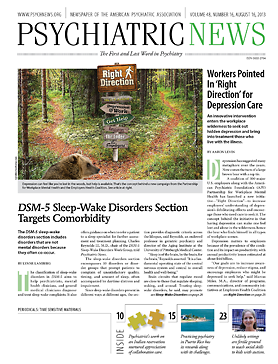For what appears to be the first time, researchers have shown that a medication can prevent depression in patients being treated for a particular type of cancer.
The trial was headed by William Lydiatt, M.D., of the Department of Otolaryngology–Head and Neck Surgery at the University of Nebraska, and findings were published online June 20 in JAMA Otolaryngology-Head and Neck Surgery.
Up to half of patients undergoing treatment for head and neck cancer are known to develop major depressive disorder. Thus, Lydiatt and his colleagues decided to conduct a large double-blind, placebo-controlled clinical trial to see if antidepressant treatment could prevent depression in such patients.
One hundred and forty-eight nondepressed patients starting treatment for head and neck cancer were randomized to receive either the SSRI antidepressant escitalopram or a placebo for 16 weeks. They were evaluated for depression during a three-month follow-up period.
Twenty-five percent of the subjects in the placebo group developed depression, while only 10 percent in the escitalopram group did—a significant difference. Also, subjects who had received the antidepressant reported a better quality of life than those getting a placebo at each time point throughout the study.
The findings have important clinical implications, the researchers pointed out.
For example, antidepressant treatment might especially benefit head and neck cancer patients who receive radiation treatment, since subjects in the study who received radiation had a higher rate of depression than did the subjects who received surgical treatment. “The observed relationship between radiation dose and development of depression in this study suggests a direct link between radiation and depression,” the researchers said. “Even though this study was not powered to detect differences in depression rates for placebo compared with escitalopram within the surgery or radiation groups, we observed that fewer patients taking escitalopram developed depression in both groups, and the difference was larger in the radiation group. The mechanism behind these differences in rate will require further investigation.”
In addition, antidepressant treatment might prevent not only depression, but also suicide in patients with head and neck cancers, since previous research has shown that such patients have a risk of suicide three times greater than the general population and two times greater than cancer patients in general.
Finally, antidepressant treatment might be able to prevent depression in patients with cancers other than head and neck cancer. “Determining which cancer patients will become depressed is nebulous,” the researchers noted. “Social support, sex, and history of depression are all potential predictors of a major depressive disorder. However, they are not consistent and are not exclusive. Because of the lack of a clear method to predict who will become depressed, the use of a prevention paradigm seems to offer considerable benefit at an acceptable risk.”
“This study is important in many ways,” Michelle Riba, M.D., a professor of psychiatry and a psycho-oncologist at the University of Michigan and a former APA president, told Psychiatric News. “It looked at a population of patients, those with head and neck cancer, where depression is a very prominent and serious condition. It studied a way to help patients in a preventive paradigm, using escitalopram. Furthermore, even though the study wasn’t designed to study quality of life, patients in the escitalopram arm had an overall improved quality of life during the study and three months consecutively after the cessation of the drug therapy.”
The study was funded by the National Institute of Mental Health and the University of Nebraska Medical Center. ■
